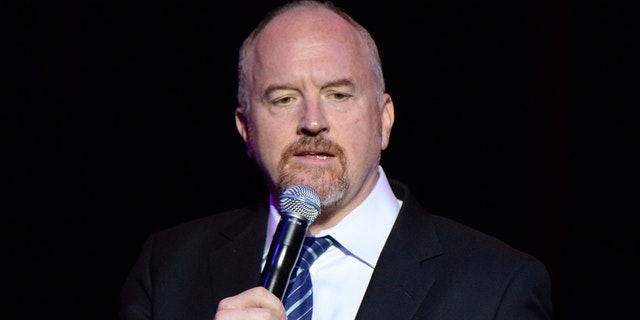In doing some research for a call with a potential client today, I ran across news coverage of Louis C.K. returning to the spotlight this week with a short stand-up routine at a New York comedy club. A comedian telling jokes is news in this case because, you undoubtedly recall, Louis C.K. was one of the higher-profile celebrities accused of shameless and shameful acts of sexual harassment and abuse last fall. He had been neither seen nor heard for more than 9 months after the maelstrom that accompanied the allegations.
And yet … here he is again, the first to resurface from among the A-listers rightly dropped by the networks and studios that employed them. How did that happen? Because when the charges against him hit oxygen and spawned headlines, he did what most of the others didn’t — he apologized.
I predicted a potential career resuscitation for Louis C.K. in my book, Bite the Dog: Build a PR Strategy to Make News That Matters, which I was writing last fall when the scandals involving Louis C.K., Kevin Spacey and Harvey Weinstein were still making news daily. Here’s the relevant portion of what I wrote in Chapter 8: $#!t is Survivable; bear with it because it tees up a key point about crisis communications in the PR game:
The co
mic certainly doesn’t deserve the Jean Hersholt Humanitarian Award for acknowledging that he exposed himself to powerless women over a period of several years. Movies and comedy specials he had in the works were cancelled, and rightly so. His manager dumped him, which indicates how toxic even association with him had become. But Louis C.K. does deserve respect on a single front: When the truth came out, he admitted it without qualification. In a statement that, if the coarse words and grammatical errors are an indication, came from his keyboard directly and not a phalanx of lawyers. If anyone tattooed as an abuser as part of that terrible Hollywood crisis has a chance of career resurrection at the proper time, it will be him. I’m not saying it will happen. I’m not saying it should happen. I’m saying it might happen because it is easier to earn back trust after an error, even a horrific one that left multiple victims in its wake, than an untruth that claims you are the victim when there is ample evidence to the contrary.
Here’s the promised key point: A sincere, straight-no-chaser apology is critical to emerging on the other end of a crisis or scandal. Don’t believe me? Think back to Janet Jackson and her infamous Super Bowl “wardrobe malfunction.” That was 14 years ago, and it’s still a punchline — in large part, I’d argue, because Michael’s little sister didn’t apologize effectively. She didn’t say she was sorry she flashed more than 144 million Americans chatting over nachos and hot dogs during halftime of the Panthers-Patriots game. She said she was sorry if anyone was offended by said flashing. Pro tip: From-the-heart mea culpas don’t include the word “if.”
Here’s the anatomy of a good apology: 1) no ifs, ands or buts — own it; 2) be specific about what you’re sorry for — and indicate you know that what you did was irresponsible or immature or dangerous or whatever makes it something you have to apologize for; and 3) go the extra mile and ask for forgiveness. Bundle those together and you’ll also be better insulated from shouts of “you’re only sorry you got caught” or criticism that you’re just rotely saying the words to get yourself off the hook.
Louis C.K.’s apology covered these points. That’s why he’s now in a position where at least some people will allow themselves to laugh at his jokes again.



Recent Comments